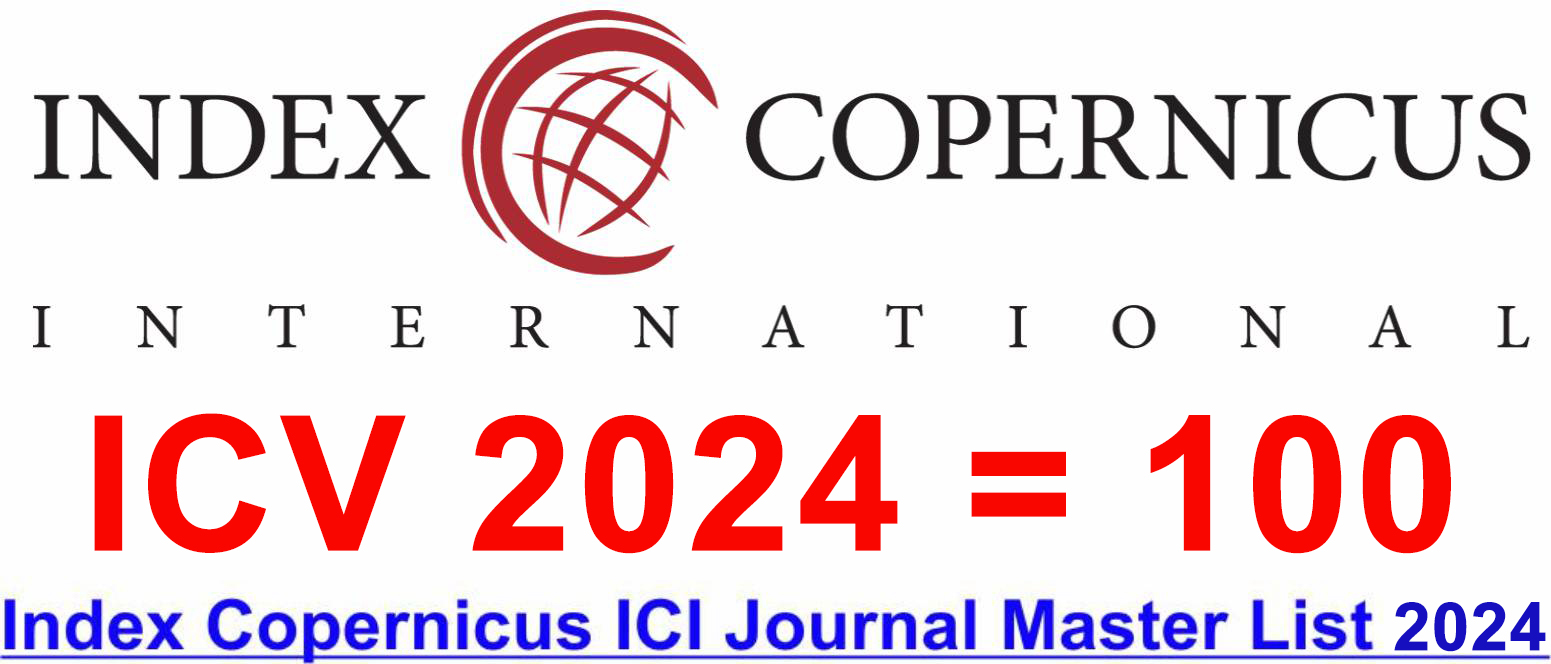Unveiling the Nexus: CSR, Corporate Image, Trust as a Mediator, and Hotel Guest Behavioral Intentions in Bangladesh
DOI:
https://doi.org/10.46977/amt.2024.v05i01.004Keywords:
Behavioural Intention, Corporate Image, CSR, PLS SEM, TrustAbstract
High increase in customer demand has significantly extended the hotel industry in Bangladesh in recent years. This increase could be a result of a number of issues, including expanding the health and social consciousness of customers. Nevertheless, the industry sometimes struggles to fulfil customer hopes. Keeping it in mind, this paper aims to evaluate the scope of corporate social responsibility (CSR) exercises within the industry and the influences they put forward on corporate image, which at the end impacts the customer behavioral intentions in Bangladeshi pretext. So, with a view to comprehending and assessing CSR practices, a quantitative research approach was applied along with a survey questionnaire on respective customers throughout the country. Three hundred participants from 45 hotels took part in structured interviews to share their experiences. All the hotels are located in Dhaka. Partial Least Squares - Structural Equation Modeling (PLS-SEM) approach was used to analyze the collected data. CSR activities in the hotel industry impacting positive and crucial relationships on corporate image have been ratified by the findings of the study. Moreover, trust played a significant role in building relationships between customer behavioral intentions and corporate image. The study also unravelled the direct positive impact of CSR activities on customer behavioral intentions in the industry of the country. Besides, the research also focused on the intricate role of CSR in forming customer behavior, trust, and corporate image. It highlighted the significance of social responsibility in amplifying the reputation of the industry, implanting trust in customers, and in effect achieving positive behavioral objectives.
Downloads
References
Aguinis, H., & Glavas, A. (2012). What we know and don’t know about corporate social responsibility: A review and research agenda. Journal of Management, 38(4), 932-968. https://doi.org/10.1177/0149206311436079
Arendt, S., & Brettel, M. (2010). Understanding the influence of corporate social responsibility on corporate identity, image, and firm performance. Management Decision, 48(10), 1469–1492. http://dx.doi.org/10.1108/00251741011090289
Asongu, J. J. (2007). The history of corporate social responsibility. Journal of Business and Public Policy, 1(2), 1-18.
Ball, D., Coelho, P. S., & Machás, A. (2004). The role of communication and trust in explaining customer loyalty: An extension to the ECSI model. European Journal of Marketing, 38(9), 1272–1293. http://dx.doi.org/10.1108/03090560410548979
Belal, A. R., & Owen, D. L. (2007). The views of corporate managers on the current state of, and future prospects for, social reporting in Bangladesh. Accounting, Auditing & Accountability Journal, 20(3), 472-494. https://doi.org/10.1108/09513570710748599
Berens, G., Van Riel, C. B., & Van Bruggen, G. H. (2005). Corporate associations and consumer product responses: The moderating role of corporate brand dominance. Journal of Marketing, 69(3), 35-48. https://doi.org/10.1509/jmkg.69.3.35.66357
Bhattacharya, C. B., & Sen, S. (2004). Doing better at doing good: When, why and how consumers respond to corporate social initiatives. California Management Review, 47(1), 9-24. http://dx.doi.org/10.2307/41166284
Carvalho, S. W., Sen, S., Mota, M. O., & Lima, R. C. (2010). Consumer reactions to CSR: A Brazilian perspective. Journal of Business Ethics, 91, 291-310. http://dx.doi.org/10.1007/s10551-010-0620-0
Flavián, C., Guinalíu, M., & Torres, E. (2005). The influence of corporate image on consumer trust: A comparative analysis in traditional versus internet banking. Internet Research, 15(4), 447–470. http://dx.doi.org/10.1108/10662240510615191
Garcia de los Salmones, M. d. M., Crespo, A. H., & del Bosque, I. R. (2005). Influence of corporate social responsibility on loyalty and valuation of services. Journal of Business Ethics, 61(4), 369-385. https://doi.org/10.1007/s10551-005-5841-2
Ghosh, S. K., Islam, N., & Bapi, A. B. (2018). The relationship between CSR, PSQ, and behavioral intentions of hotel customers in Bangladesh. M-Infiniti-Journal of Management, Sri Sai Ram Institute of Management of Studies, Chennai, India, 12(1), 50-67. https://papers.ssrn.com/sol3/papers.cfm?abstract_id=3151249
Guchait, P., Anner, M., & Wu, L. (2011). Consumer perceptions of corporate social responsibility of service firms: Impact on customer attitudes and behavioral intentions. 16th Graduate Students Research Conference. https://hdl.handle.net/20.500.14394/29964
Hair, J. F., Black, W. C., Babin, B. J., Anderson, R. E., & Tatham, R. L. (2006). Multivariate Data Analysis (6th ed.). Pearson Prentice-Hall, International Edition, Upper Saddle River, New Jersey.
Hasan, I., Singh, S., & Kashiramka, S. (2021). Does corporate social responsibility disclosure impact firm performance? An industry-wise analysis of Indian firms. Environment, Development and Sustainability, 24, 1-41. https://doi.org/10.1007/s10668-021-01859-2
Hassan, Y., Pandey, J., Behl, A., Pereira, V., & Vaz, D. (2023). CSR authenticity and micro-foundations of business: a systematic review. Cross Cultural & Strategic Management, 30(1), 37-68. https://doi.org/10.1108/CCSM-11-2021-0213
Kabir, M. H. (2011). Corporate social responsibility by Swaziland hotel industry. Procedia-Social and Behavioral Sciences, 25, 73-79. https://doi.org/10.1016/j.sbspro.2011.10.529
Keh, H. T., & Xie, Y. (2009). Corporate reputation and customer behavioral intentions: The roles of trust, identification, and commitment. Industrial Marketing Management, 38(7), 732-742. https://doi.org/10.1016/j.indmarman.2008.02.005
Khan, H. U. Z., Halabi, A. K., & Samy, M. (2009). Corporate social responsibility (CSR) reporting: A study of selected banking companies in Bangladesh. Social Responsibility Journal, 5(3), 344–357. https://doi.org/10.1108/17471110910977276
Kim, R. B., & Chao, Y. (2019). Effects of brand experience, brand image, and brand trust on brand building process: The case of Chinese millennial generation consumers. Journal of International Studies, 12(3). http://dx.doi.org/10.14254/2071-8330.2019/12-3/1
Lai, C. S., Chiu, C. J., Yang, C. F., & Pai, D. C. (2010). The effects of corporate social responsibility on brand performance: The mediating effect of industrial brand equity and corporate reputation. Journal of Business Ethics, 95, 457-469. https://doi.org/10.1007/s10551-010-0433-1
Lantos, G. P. (2001). The boundaries of strategic corporate social responsibility. Journal of Consumer Marketing, 18(7), 595–632. https://doi.org/10.1108/07363760110410281
Lantos, G. P. (2002). The ethicality of altruistic corporate social responsibility. Journal of Consumer Marketing, 19(3), 205–232. https://doi.org/10.1108/07363760210426049
Le, H. D., & Ferguson, D. L. (2016). Customers relationship enhancements from corporate social responsibility activities within the hospitality sector: Empirical research from Vietnam. Corporate Reputation Review, 19(3), 244-262. http://dx.doi.org/10.1057/s41299-016-0001-4
Le, T. T. (2023). Corporate social responsibility and SMEs' performance: Mediating role of corporate image, corporate reputation, and customer loyalty. International Journal of Emerging Markets, 18(10), 4565-4590. https://doi.org/10.1108/IJOEM-07-2021-1164
Lee, Y., Kim, Y., Lee, K. H., & Li, D. (2012). The impact of CSR on relationship quality and relationship outcomes: A perspective of service employees. International Journal of Hospitality Management, 31, 745-756. https://doi.org/10.1016/j.ijhm.2011.09.011
Liu, Y., & Zhou, X. (2009). Corporate social responsibility and customer loyalty: A conceptual framework. IEEE, 794-798. http://dx.doi.org/10.1109/ICSSSM.2009.5174989
Lu, J., Liang, M., Zhang, C., Rong, D., Guan, H., Mazeikaite, K., & Streimikis, J. (2021). Assessment of corporate social responsibility by addressing sustainable development goals. Corporate Social Responsibility and Environmental Management, 28(2), 686-703. https://doi.org/10.1002/csr.2081
McDonald, L. M., & Hung Lai, C. (2011). Impact of corporate social responsibility initiatives on Taiwanese banking customers. International Journal of Bank Marketing, 29(1), 50-63. https://doi.org/10.1108/02652321111101374
Mohr, L. A., Webb, D. J., & Harris, K. E. (2001). Do consumers expect companies to be socially responsible? The impact of corporate social responsibility on buying behavior. The Journal of Consumer Affairs, 35(1), 45-72. https://doi.org/10.1111/j.1745-6606.2001.tb00102.x
N'Goala, G. (2007). Customer switching resistance (CSR) The effects of perceived equity, trust and relationship commitment. International Journal of Service Industry Management, 18(5), 510-533. https://doi.org/10.1108/09564230710826278
Nguyen-Viet, B., Tran, C. T., & Ngo, H. T. K. (2024). Corporate social responsibility and behavioral intentions in an emerging market: The mediating roles of green brand image and green trust. Cleaner and Responsible Consumption, 12, 100170. https://doi.org/10.1016/j.clrc.2024.100170
Nunnally, J. C. (1978). Psychometric Theory (2nd ed.). New York: McGraw-Hill.
Orth, U. R., & Green, M. T. (2009). Consumer loyalty to family versus non-family business: The roles of store image, trust, and satisfaction. Journal of Retailing and Consumer Services, 16(4), 248-259. https://doi.org/10.1016/j.jretconser.2008.12.002
Park, K. (2024). CSR fit with CEO image: Unpacking its influence on stakeholder engagement and authenticity perception. Journal of Marketing Communications, 1-25. https://doi.org/10.1080/13527266.2024.2306906
Pomering, A., & Johnson, L. W. (2009). Constructing a corporate social responsibility reputation using corporate image advertising. Australasian Marketing Journal, 17(2), 106-114. http://dx.doi.org/10.1016/j.ausmj.2009.05.006
Poolthong, Y., & Mandhachitara, R. (2009). Customer expectations of CSR, perceived service quality, and brand effect in Thai retail banking. International Journal of Bank Marketing, 27(6), 408-427. https://doi.org/10.1108/02652320910988302
Shabbir, M. S., & Wisdom, O. (2020). The relationship between corporate social responsibility, environmental investments and financial performance: evidence from manufacturing companies. Environmental Science and Pollution Research, 27, 39946-39957. https://doi.org/10.1007/s11356-020-10217-0
Sheikh, S. R., & Beise-Zee, R. (2011). Corporate social responsibility or cause-related marketing? The role of cause specificity of CSR. Journal of Consumer Marketing, 28(1), 27-39. https://doi.org/10.1108/07363761111101921
Tosun, P., & Köylüoğlu, A. S. (2023). The impact of brand origin and CSR actions on consumer perceptions in retail banking during a crisis. International Journal of Bank Marketing, 41(3), 485-507. https://doi.org/10.1108/IJBM-03-2022-0137
Vaaland, T. I., Heide, M., & Grønhaug, K. (2008). Corporate social responsibility: investigating theory and research in the marketing context. European Journal of Marketing, 42(9), 927-953. https://doi.org/10.1108/03090560810891082
Vanhamme, J., Lindgreen, A., Reast, J., & van Popering, N. (2012). To do well by doing good: Improving corporate image through cause-related marketing. Journal of Business Ethics, 109(3), 259-274. https://doi.org/10.1007/s10551-011-1134-0
Yang, J., & Basile, K. (2021). Communicating corporate social responsibility: External stakeholder involvement, productivity and firm performance. Journal of Business Ethics, 1-17. https://doi.org/10.1007/s10551-021-04812-5
Yu, W., Han, X., Ding, L., & He, M. (2021). Organic food corporate image and customer co-developing behavior: The mediating role of consumer trust and purchase intention. Journal of Retailing and Consumer Services, 59, 102377. https://doi.org/10.1016/j.jretconser.2020.102377
Published
How to Cite
Issue
Section
Copyright (c) 2024 Advancement in Management and Technology (AMT)

This work is licensed under a Creative Commons Attribution-NonCommercial 4.0 International License.



















